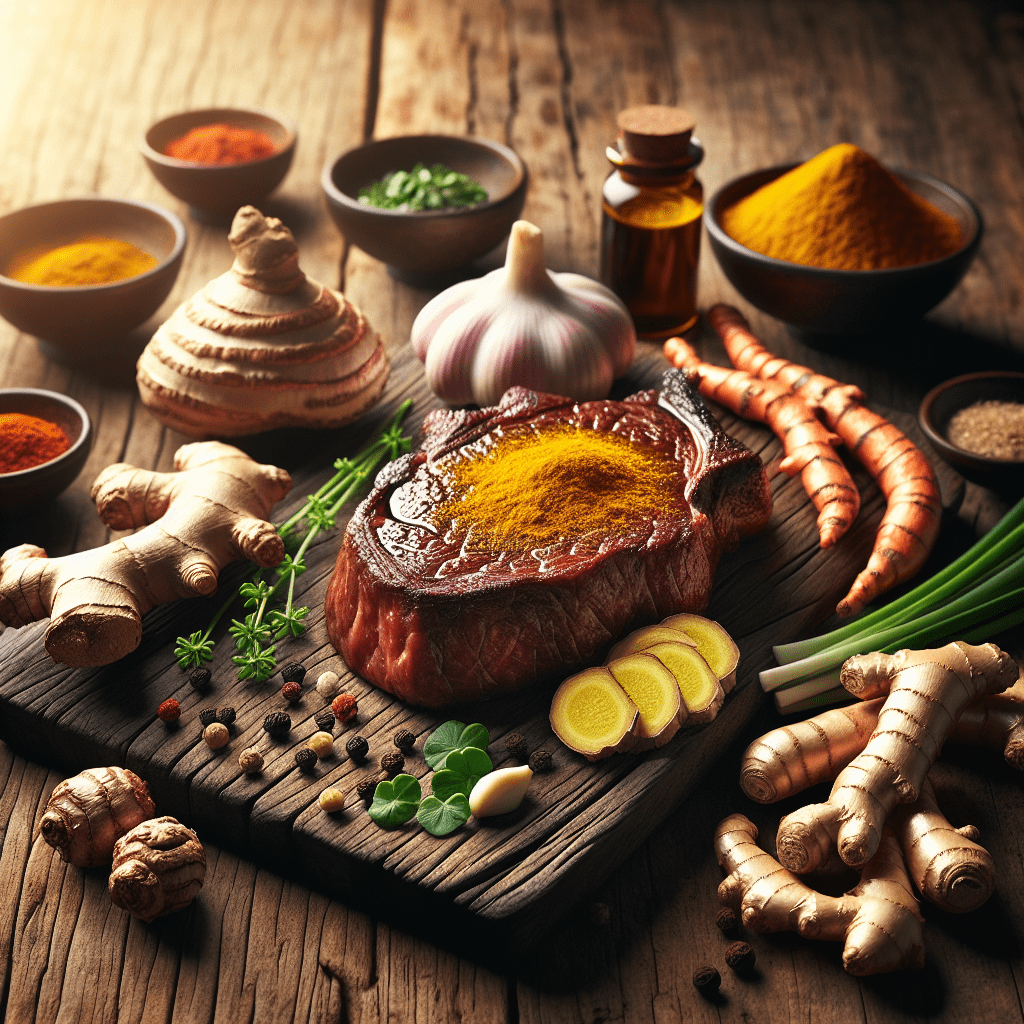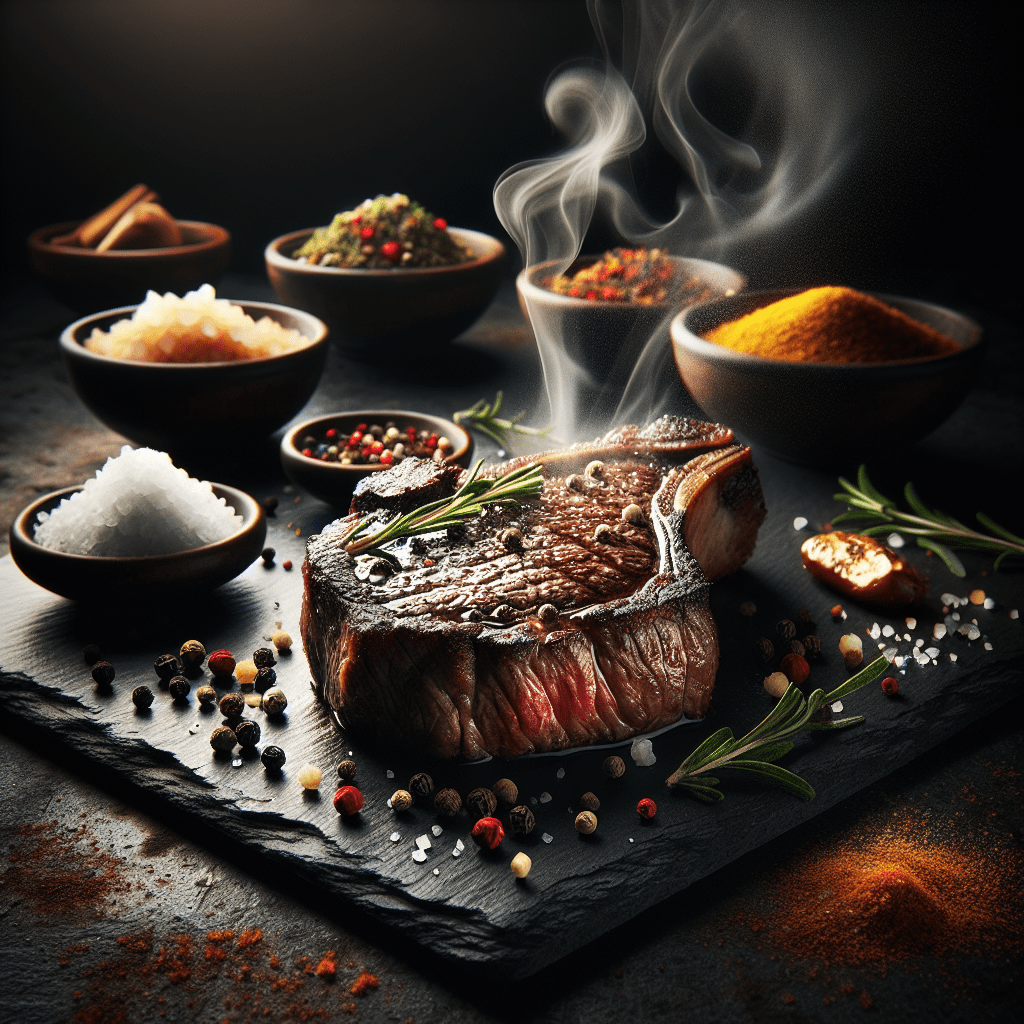In a world of fast food and convenience eating, there’s something incredibly powerful about returning to ancient wisdom. Eastern culinary traditions have long understood what modern nutritionists are only beginning to appreciate – that the right seasonings can transform not just the flavor of your food, but also your health. These time-honored practices aren’t just about making meals taste good; they’re about creating harmony within the body through thoughtful diet seasoning choices.
For centuries, Eastern cultures have approached food as medicine, using herbs and spices strategically to balance the body’s needs. This isn’t just culinary tradition—it’s a holistic approach to wellness that treats each person as unique, with individual needs and constitutions. What makes this approach so relevant today is how perfectly it aligns with our growing understanding of personalized nutrition and the desire to find natural ways to enhance our health.
Imagine transforming your daily meals from simply satisfying hunger to actively supporting your unique health profile. That’s the magic of personalized diet seasoning inspired by Eastern wisdom—a practice that’s both profoundly simple and incredibly sophisticated.
The Healing Power of Eastern Herbs and Spices
The treasures of Eastern spice cabinets extend far beyond flavor enhancement. In traditional Eastern medicine systems, herbs and spices are respected for their dual role as both culinary enhancers and powerful healing agents. Turmeric, for instance, isn’t just the golden spice that gives curry its distinctive color—it’s a potent anti-inflammatory that has been used medicinally for thousands of years.
These natural seasonings offer a remarkable alternative to the processed condiments that dominate Western kitchens. While table salt, refined sugar, and artificial flavor enhancers can contribute to health problems like high blood pressure and inflammation, traditional Eastern seasonings often do the opposite—they actively support health while delighting the taste buds.
Consider the humble ginger root, a staple in many Eastern cuisines. Beyond its distinctive zing, ginger contains gingerol, a bioactive compound with powerful anti-inflammatory and antioxidant effects. It can aid digestion, reduce nausea, and may even help fight infections. Similarly, cinnamon doesn’t just add warmth to dishes—it can help regulate blood sugar levels and contains impressive amounts of antioxidants.
By incorporating these traditional diet seasonings, you’re not just reducing unhealthy additives like excess sodium and sugar—you’re actively introducing compounds that support your body’s natural functions. Garlic, for example, contains allicin, which has been shown to boost immune function and reduce cholesterol levels. Oregano offers antimicrobial properties alongside its distinctive flavor, while sumac provides a tangy punch along with antioxidants that fight free radicals.
As one researcher noted, “Almost all spices contain natural healing properties, minerals, and essential vitamins. Some are anti-inflammatory, others are rich in antioxidants, and many support immune function.” This multi-dimensional approach to seasoning represents a fundamental shift from seeing spices as mere flavor enhancers to recognizing them as vital contributors to our overall health.
Personalized Seasoning: Understanding Your Constitution
Perhaps the most revolutionary aspect of Eastern dietary wisdom is the recognition that no two bodies are identical. Traditional systems like Ayurveda and Traditional Chinese Medicine have long emphasized that each person has a unique constitutional makeup that influences how foods affect them. This concept of constitution-based seasoning is experiencing a renaissance today as we begin to understand the science behind this ancient wisdom.
Your body constitution—determined by factors like metabolism, digestion, and natural tendencies—significantly influences which flavors and seasonings will best support your health. Some people naturally run “hot” and benefit from cooling spices like fennel or coriander, while others with “colder” constitutions might thrive with warming spices like cinnamon or black pepper.
EASTCHI AI builds upon this foundational wisdom by analyzing individual health patterns through the lens of Eastern medicine’s Five Element Theory. This analysis enables a personalized approach to diet seasoning that goes beyond generic recommendations. By understanding your unique constitutional pattern, you can make informed choices about which seasonings will not only please your palate but actively support your body’s needs.
For example, someone with a tendency toward digestive sluggishness might benefit from incorporating more pungent spices like ginger and black pepper, which stimulate digestive fire. Meanwhile, someone prone to inflammation might do better with cooling herbs like mint or dill. This isn’t just theory—many people report significant improvements in energy, digestion, and overall wellbeing when they align their diet seasoning choices with their constitutional needs.
As one practitioner explained, “Ayurveda emphasizes balance over restriction, encouraging a personalized diet based on an individual’s constitution.” This principle applies perfectly to seasoning choices, allowing for a flexible, intuitive approach rather than rigid rules.
Practical Tips for Your Seasoning Journey
Starting your personalized diet seasoning journey doesn’t require a complete kitchen overhaul. Small, intentional steps can lead to significant discoveries about what works best for your body. Here are some practical ways to begin:
Start with a spice exploration week: Choose one new herb or spice to experiment with each day. Notice not just the flavors but how your body feels after eating meals seasoned with different options.
Create your signature spice blends: Once you’ve identified seasonings that both taste good and make you feel good, create your own custom blends. A personalized curry powder or herb mix can become your go-to seasoning that’s tailored specifically to your needs.
Practice the gradual swap: Instead of eliminating salt entirely, try gradually reducing it while increasing flavor-enhancing herbs. Your taste buds will adjust, and you’ll likely discover new flavor dimensions you’ve been missing.
Connect seasonings to symptoms: Notice patterns between certain seasonings and how you feel. Does turmeric seem to reduce joint stiffness? Does cinnamon help stabilize your energy levels? These observations can guide your choices.
Consider seasonal adjustments: Eastern wisdom emphasizes adapting your diet to the seasons. Warming spices like cinnamon, cloves, and ginger may serve you better in winter, while cooling herbs like mint and cilantro might feel right in summer.
As you experiment, remember that preference matters. Your body often craves what it needs, so if you’re particularly drawn to certain flavors, that might be your constitution guiding you toward balance. Pay attention to these natural inclinations while remaining open to new discoveries.
The beauty of this approach is that it transforms healthy eating from a chore into an adventure. Rather than following restrictive rules, you’re engaging in a process of self-discovery, finding the unique flavor combinations that make healthy eating genuinely enjoyable for you.
The Science Behind the Spice
While these approaches may sound rooted solely in tradition, modern research increasingly supports the health benefits of diverse herb and spice consumption. The American Heart Association has highlighted how creative seasoning strategies can enhance flavor without additional calories, sodium, or unhealthy fats—a win for cardiovascular health.
Studies show that many traditional Eastern spices contain potent bioactive compounds with measurable health effects. Curcumin in turmeric has been extensively studied for its anti-inflammatory properties, with some research suggesting it may be as effective as certain anti-inflammatory drugs for some conditions, but without the side effects. Recent research on standardization of constitutional assessment further validates these traditional approaches.
Research from the Journal of Nutritional Biochemistry found that cinnamon can improve insulin sensitivity and help lower blood sugar in people with type 2 diabetes. Meanwhile, compounds in garlic have been shown to reduce cholesterol levels and blood pressure in multiple studies.
Perhaps most intriguingly, emerging research on the gut microbiome suggests that diverse herb and spice consumption may support a healthier community of beneficial bacteria in our digestive systems. Given the growing understanding of how gut health influences everything from immunity to mental health, this connection adds another dimension to the importance of thoughtful seasoning. The Canadian Food Guide even recommends creating personalized spice mixes to enhance flavor naturally.
Even the simple act of cooking with more herbs and spices correlates with healthier eating patterns overall. One study found that people who used a greater variety of spices tended to consume more vegetables and less sodium—suggesting that an expanded spice palette might naturally lead to more nutritious food choices.
As one nutrition researcher noted, “Spices like cinnamon and turmeric may help lower inflammation and support blood sugar control, while garlic, oregano, and ginger may support immunity and offer natural antimicrobial properties.” This scientific validation of traditional wisdom creates a compelling case for integrating more diverse seasonings into our daily meals.
Embracing Ancient Wisdom for Modern Wellness
The beauty of diet seasoning inspired by Eastern traditions lies in its perfect balance of simplicity and sophistication. It doesn’t require expensive supplements or complicated regimens—just a thoughtful approach to the ingredients already present in your kitchen.
By embracing this approach, you’re not just enhancing flavors; you’re participating in a tradition of wellness that has sustained cultures for millennia. You’re recognizing food as more than fuel—it’s information that communicates with your body at a cellular level, with seasonings acting as crucial messengers.
HerbalsZen’s philosophy perfectly aligns with this integrated approach. By merging traditional Eastern wisdom with modern technology through tools like EASTCHI AI, we bridge ancient knowledge and contemporary science. This fusion allows us to honor time-tested principles while benefiting from current understanding of nutrition and health.
The constitutional analysis offered through EASTCHI AI can help identify which seasonings might best support your individual health needs, taking the guesswork out of personalization. This guidance makes Eastern dietary wisdom accessible even without years of study in traditional systems.
As you continue on your wellness journey, consider how the simple act of mindful seasoning can become a daily practice of self-care. Each pinch of turmeric or sprig of mint becomes an affirmation of your commitment to supporting your body’s unique needs.
Diet seasoning, viewed through this lens, becomes more than a culinary choice—it’s a powerful tool for personalized health optimization. By drawing on traditions that have recognized individual uniqueness for thousands of years, we can create meals that truly nourish our particular constitutions.
The next time you reach for your spice rack, remember that you’re not just cooking—you’re participating in an ancient tradition of healing, adapted perfectly for your modern life. Your kitchen can become a place of discovery, where flavors and wellness unite in perfect harmony, seasoned exactly right for you.



